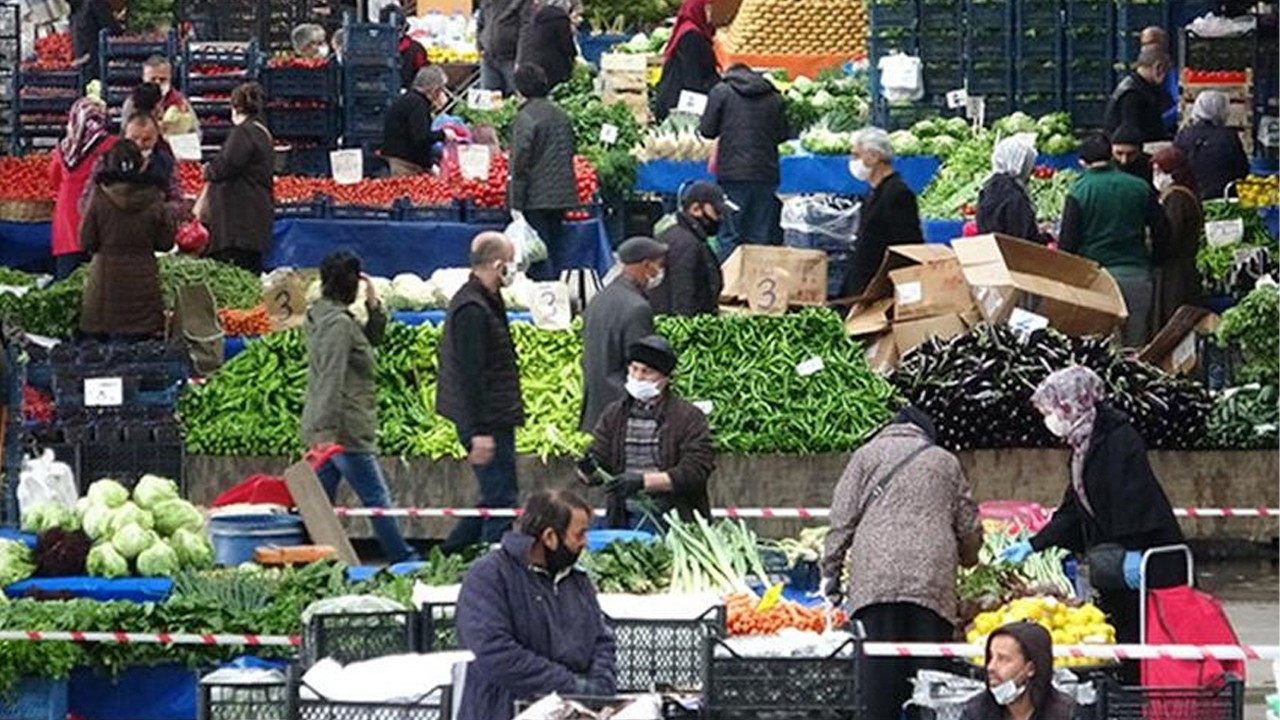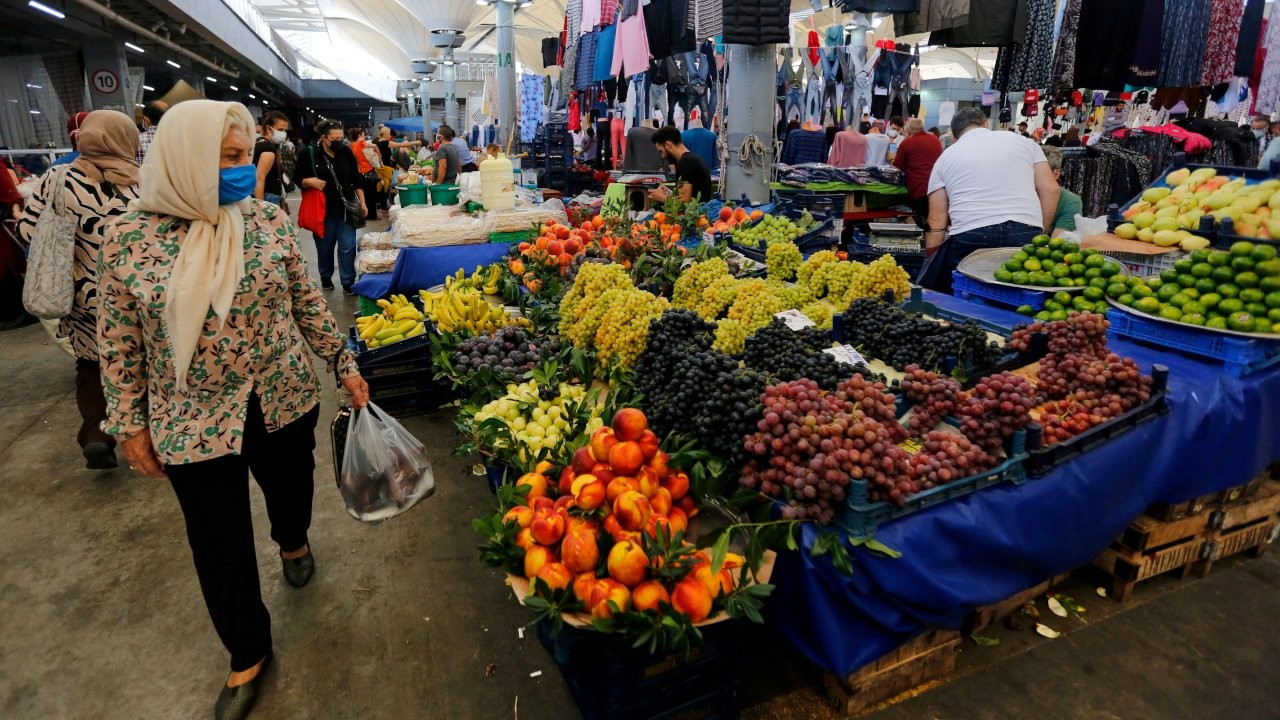Climate change and pandemic raise coffee prices, threatening Turkish cultural staple
As coffee prices rise due to climate change and global supply and economic issues brought about as a result of the pandemic, one of Turkey’s most central cultural pastimes - having a cup of coffee - may be at risk.
Aynur Tekin / DUVAR
Severe weather, pandemic shipping issues, and a struggling global economy are contributing to a surge in coffee prices - in the past year, the base price of coffee doubled. For a country like Turkey, where coffee is a central part of social life and a cultural staple, this rise in prices could have an enormously detrimental effect. As the Turkish economy continues to flounder, high-priced coffee could push some coffee drinkers away from the habit and drive many small coffee producers out of business.
Climate change is one of the primary factors in the skyrocketing prices of coffee. In the past year, hundreds of thousands of coffee trees in Brazil - the world’s largest coffee producer - have been destroyed by drought, frost, and other extreme weather events caused by climate change. These trees can take from four to seven years to grow back, and are notoriously weather-sensitive - coffee crops can be threatened by higher-than-usual levels of wind, heat, or cold, all of which are more likely as a result of climate change. The coffee most directly affected by this year’s weather events was the popular arabica strand.
Coffee prices aren’t high only as a result of the weather. Prices - which are at a six-year high - have also been driven up by shipping delays and obstructions brought about by the Covid-19 pandemic. The port of Ho Chi Minh City in Vietnam, for example, closed its ports during the pandemic, bringing global trade there to a standstill. Many other countries have closed their borders or imposed high barriers to entry for trade, all of which have led to a surge in coffee prices.
Atilla Şık is a coffee connoisseur who has been in the business since 2010. He has lived all over the world, discovering and importing coffee from countries such as Indonesia, Tanzania, and Kenya. He noted in an interview with Gazete Duvar that the port closure in Vietnam had an outsized effect on coffee prices around the world, including in Turkey.
“Due to its proximity to Singapore and the fact that it is neighbors with China, Ho Chi Minh as a port is very important,” he said.
He also highlighted the effect that the rise in prices would have on the market in Turkey. Last year, the retail price of Turkish coffee was approximately 50 lira per kilo. Now, it is 90 to 100 lira per kilo. Many coffee producers in Turkey buy coffee in 100-gram packs - one year ago, one of these packages cost around 6 liras. Now, the most affordable packet you can find is 7.75 liras, but most cost around 9 liras.
This price increase also affects individual consumers. Turkish consumers typically purchase granular coffee in smaller packages - now, the average consumer price of a 100-gram package of Turkish coffee is 50 to 60 lira. Last year, it was 25 to 30 lira. Many Turkish people drink Turkish coffee every day - it is a means of socializing, of energizing, and of winding down. As the lira’s value greatly depreciates, this rise in coffee prices may mean many need to cut the beverage out of their daily routine.
“The price of this may increase by three to four times in the future,” said Şık. “Coffee is a substance consumed more than water around the world […] Let’s imagine that 100 grams of coffee cost 120 liras in 2023. Then, coffee will be a special beverage that is not served to others. It will be kept for oneself.
Large corporations like Nestle and Starbucks have announced that the coffee shortage will not affect their brands’ prices. They have large stocks that can cushion the blow of this year’s poor harvest and shipping delays. However, says Şık, this is not the case for smaller coffee producers.
In Turkey, warehouses that process coffee in cities like Gaziantep and Urfa do not have high levels of stock - they cannot artificially keep prices low. Further, if large corporations buy up what is left of the coffee in countries like Indonesia and Brazil, these small producers will be in an even more dire situation. Şık said that corporations will hold the rights to all coffee produced by farms they purchase -- the farms with the “most beautiful, healthiest, well-groomed beans” and that small producers will be unable to access the stock. Coffee prices for small producers will then be driven even higher.
According to Şık, once these prices rise, they will be impossible to bring back down.
“When nature recovers and the yield returns to its former state, it will be impossible to say ‘let’s lower the prices,’” he said. “This rise in prices will not decrease.”
As a result of the climate crisis and the rise in prices, the Turkish government has lowered import taxes on coffee from 13 percent to eight percent. However, coffee producers say this isn’t enough to keep prices down - they want the import fees to be brought to zero.

 Questionable COVID-19 measures hurt business for Turkey's coffee housesEconomy
Questionable COVID-19 measures hurt business for Turkey's coffee housesEconomy ‘Tsunami in the kitchen,’ annual food price increase hits 35.7 percentEconomy
‘Tsunami in the kitchen,’ annual food price increase hits 35.7 percentEconomy Turkish inflation accelerates, reaches 19.58%Economy
Turkish inflation accelerates, reaches 19.58%Economy